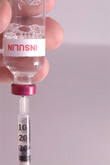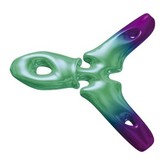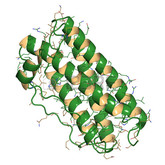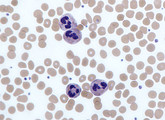Biosimilars/General
IVM releases toolbox on how to switch patients to insulin biosimilars
The Dutch Instituut voor Verantwoord Medicijngebruik (Institute for Responsible Medicines Use, IVM) has released a toolbox for healthcare providers on how to switch patients to insulin biosimilars.
Biosimilar patent litigation trends in the US
According to authors from Law360 the trend in biosimilar patent litigation cases has been downward, with many cases being resolved and only five cases still pending as of 31 December 2020 [1].
Biosimilar approvals and launches in the US
An examination of biosimilar approvals by the US Food and Drug Administration (FDA) compared to launches was carried out by authors from Law360 [1].
Biosimilar approvals and patent litigation in the US
Authors from Law360 have examined biosimilar approvals by the US Food and Drug Administration (FDA) under the Biologics Price Competition and Innovation Act of 2009 (BPCI Act) and ensuing patent litigation actions. They also discuss why the lack of new approvals and litigation in 2020 does not suggest reduced interest in biosimilars but signals a new wave of biosimilars on the horizon [1].
Biosimilars of bevacizumab
Last update: 5 February 2021
Bevacizumab is a humanized monoclonal antibody. It inhibits angiogenesis (the formation of new blood vessels) by blocking the action of vascular endothelial growth factor A (VEGF-A). Bevacizumab can therefore slow the growth of new blood vessels in tumours and is used to treat various cancers, including colorectal, lung, breast, glioblastoma, kidney and ovarian.
Samsung biosimilars: denosumab clinical trials begin, while rituximab development is halted
Korea-based Samsung Bioepis (Samsung and Biogen’s joint venture) has initiated phase III trials for its denosumab biosimilar, while development on a rituximab biosimilar through subsidiary company Archigen Biotech has been stopped.
Biosimilars of filgrastim
Last update: 22 January 2021
Filgrastim is a granulocyte colony-stimulating factor (G-CSF). Filgrastim treatment can be used to stimulate the bone marrow to produce more neutrophils (white blood cells) to fight infection in patients undergoing chemotherapy for cancer treatment.
Biosimilars applications under review by EMA – January 2021
The European Medicines Agency (EMA) is the body responsible for approval of biosimilars within the European Union (EU). A legal framework for approving biosimilars was established in 2003. Approval of biosimilars is based on an abbreviated registration process, which allows biosimilars manufacturers to provide a reduced package of information compared to originator drugs, provided they can prove ‘similarity’ to the originator or reference drug.
Biosimilars of pegfilgrastim
Last update: 15 January 2021
Pegfilgrastim is a PEGylated form of the recombinant human granulocyte colony-stimulating factor (G-CSF) analogue filgrastim. It serves to stimulate the level of white blood cells (neutrophils). Pegfilgrastim treatment can be used to stimulate bone marrow to produce more neutrophils (white blood cells) to fight infection in patients undergoing chemotherapy.
Biosimilars of trastuzumab
Last update: 15 January 2021
Trastuzumab is a monoclonal antibody that binds to and inactivates the human epidermal growth factor receptor 2 (HER2)/neu receptor. In some cancers, notably certain types of breast cancers, HER2 is over-expressed, and causes cancer cells to reproduce uncontrollably. Trastuzumab is therefore used to treat HER2 positive (HER2+) breast cancers.













